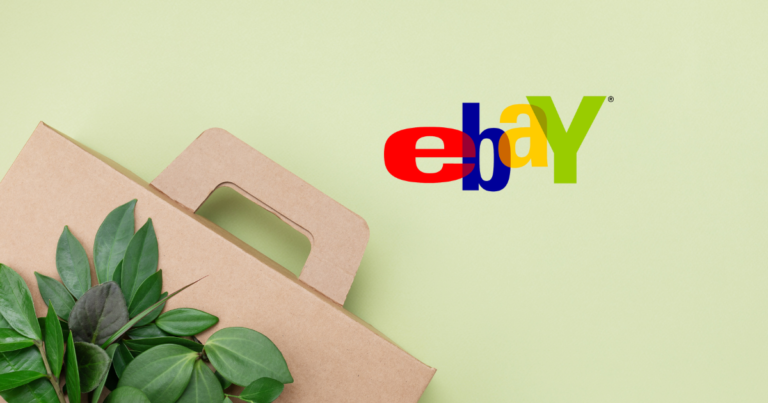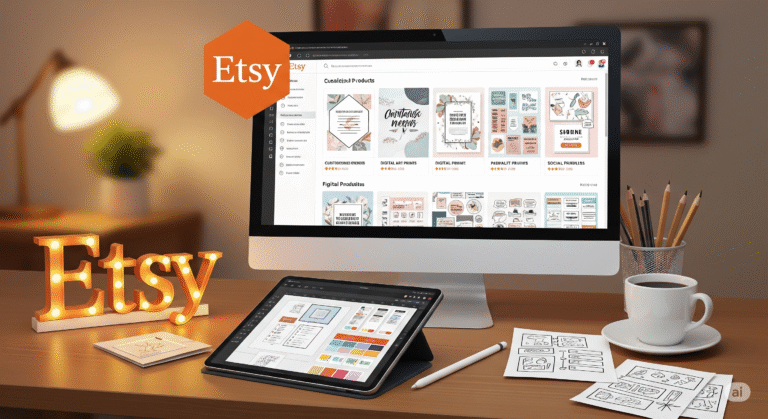The Ultimate Guide to Launching Your First Digital Product: From Idea to Income 2025
Table of Contents
Do you have a skill, a passion, or a unique perspective that you’ve been yearning to share with the world? Perhaps you’re tired of trading hours for dollars, feeling stuck on the hamster wheel of traditional work. I’ve been there. I remember staring at my computer screen, a spark of an idea in my mind, but completely overwhelmed by the “how.” The thought of creating something once and selling it infinitely seemed like a dream reserved for others. But what if I told you that turning your expertise into a profitable digital product isn’t just a dream, it’s an achievable reality? This guide is for you—the aspiring creator, the budding entrepreneur—who is ready to take that leap and transform your knowledge into a source of passive income.
Finding Your Winning Digital Product Idea
The foundation of a successful digital product is solving a problem. Your first step isn’t to create; it’s to listen. What questions do people in your network constantly ask you? What common frustrations do you see in your online communities? Your unique knowledge is a goldmine waiting to be tapped.
The Foundation of a Successful Digital Product
- Solve a Problem: Think about what your target audience struggles with. Are they trying to get fit, learn a new skill, or manage their finances better? Your product should offer a clear solution.
- Leverage Your Expertise: What are you genuinely good at? If you’re a fantastic baker, a digital cookbook or a course on decorating cakes could be your calling. If you’re a whiz with spreadsheets, a template that helps small businesses track their expenses could be a huge win.
5 High-Demand Digital Product Niches
To get your ideas flowing, consider these popular niches where demand is consistently high:
- Health & Wellness: People are always looking for ways to improve their lives. This could be anything from a 30-day fitness plan to a guided meditation series.
- Business & Marketing: Entrepreneurs and small business owners need tools to grow. Think social media templates, SEO checklists, or business plan kits.
- Creative Arts: From graphic designers to photographers, creators often sell their assets. Think Lightroom presets, digital art brushes, or custom font packs.
- Personal Development: People want to be better versions of themselves. This is a great space for productivity planners, habit trackers, or goal-setting worksheets.
- Education: If you have a skill to teach, you can create and sell educational materials like language learning guides, study packs for students, or specialized tutorials.
Creating Your Digital Product with Ease
You don’t need a massive budget or a team of designers to create a high-quality product. The key is to start simple and use the right tools.
Tools and Resources for Digital Product Creation
- For Ebooks and Guides: Use user-friendly design tools like Canva to create stunning layouts without any prior design experience. For more complex projects, professional software like Adobe InDesign is an option.
- For Online Courses: Platforms such as Teachable and Podia provide all-in-one solutions for hosting your video lessons, managing students, and processing payments.
- For Templates: Tools like Canva and Adobe Photoshop or Illustrator are ideal for creating professional-looking templates that your customers can easily customize.
Structuring Your Content for Maximum Value
Your product’s value isn’t just in the information; it’s in how you present it. Organize your content into logical, easy-to-follow sections. Use a clear and engaging tone, and incorporate visuals to break up the text. Remember, your goal is to provide a transformative experience for your customer, not just to sell them information.
Setting Up Your Digital Storefront
Once your product is ready, you need a place to sell it. The right platform can make all the difference, so choose one that fits your technical comfort level and business goals.
Choosing the Right Platform to Sell Your Digital Products
| Platform Category | Pros | Cons |
| All-in-One (e.g., Gumroad, Podia) | Super easy to use, handles payments and file delivery. | You pay a transaction fee on each sale. |
| Self-Hosted (e.g., WordPress + WooCommerce) | Full control over your store, no transaction fees. | Requires some technical knowledge to set up and maintain. |
| Marketplaces (e.g., Etsy, Creative Market) | Built-in audience of potential buyers. | High competition and platform fees can be significant. |
Export to Sheets
Crafting a Compelling Product Listing
Your product listing is your digital storefront’s window display. Make it irresistible.
- Benefit-Driven Headline: Your headline should immediately tell the customer what they will gain from your product (e.g., “Launch Your Ebook in 7 Days” instead of just “Ebook Template”).
- Engaging Description: Tell a story. Describe the “before” and “after” experience your customer will have.
- Visuals: Use high-quality mockups and images of your product in use to help customers visualize what they’re getting.
Marketing Your Digital Product for Success
A great product won’t sell itself. You need a strategy to get it in front of the right people.
Driving Traffic to Your Storefront
- Content Marketing: Create blog posts, videos, or podcasts related to your product’s topic. For example, if you sell a meal planning guide, write an article about “5 Easy Ways to Save Time on Meal Prep.”
- Email Marketing: Build an email list by offering a freebie related to your product. This is your most valuable asset, as it allows you to communicate directly with people who are already interested in your niche.
- Social Media: Engage with your audience, host Q&A sessions, and share snippets of your product. Use platforms where your target audience spends their time.
Conclusion: Your Digital Product Journey Begins Now
Launching your first digital product may feel daunting, but it’s a series of manageable steps. Start with a single idea, create a valuable product, and share it with the world. You have a unique perspective that someone out there is waiting for. Are you ready to take the first step and turn your knowledge into income?
Frequently Asked Questions About Creating a Digital Product
- How do I know if my digital product idea is a good one? Your idea is strong if it solves a real problem, fills a gap in the market, and aligns with your unique expertise. Listen to what your audience is asking for.
- How much does it cost to create a digital product? The financial cost can be as low as zero, using free tools like Canva. The biggest investment is often your time and effort.
- Can I really make money with a digital product if I’m not an expert? Yes! You don’t have to be a world-renowned expert. You just need to be a few steps ahead of your target audience and provide valuable, helpful content. Your authenticity and desire to help others are what truly sell.







